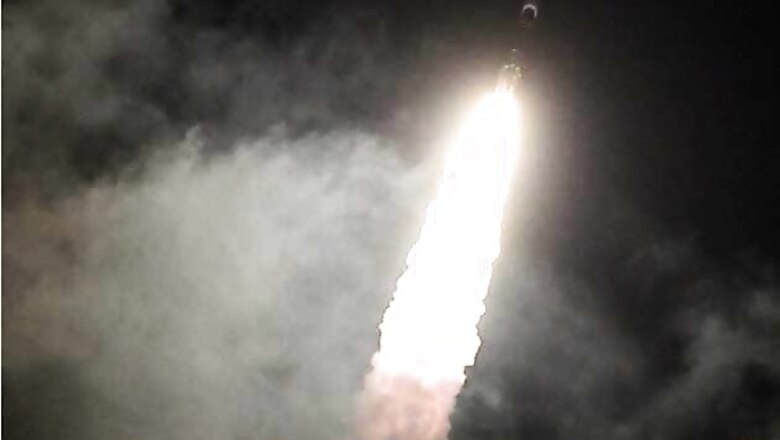
views
Washington: The Global Positioning System (GPS) may be an effective tool to directly detect and measure dark matter, an elusive but ubiquitous form of matter responsible for the formation of galaxies.
Researchers have proposed a method for a dark-matter search with GPS satellites and other atomic clock networks that compares times from the clocks and looks for discrepancies.
"Despite solid observational evidence for the existence of dark matter, its nature remains a mystery," said Andrei Derevianko, from the University of Nevada, Reno.
"Some research programmes in particle physics assume that dark matter is composed of heavy-particle-like matter. This assumption may not hold true, and significant interest exists for alternatives," said Derevianko.
Modern physics and cosmology fail dramatically in that they can only explain 5 per cent of mass and energy in the universe in the form of ordinary matter, but the rest is a mystery.
There is evidence that dark energy is about 68 per cent of the mystery mass and energy. The remaining 27 per cent is generally acknowledged to be dark matter, even though it is not visible and eludes direct detection and measurement.
"Our research pursues the idea that dark matter may be organised as a large gas-like collection of topological defects, or energy cracks," Derevianko said. "We propose to detect the defects, the dark matter, as they sweep through us with a network of sensitive atomic clocks.
"The idea is, where the clocks go out of synchronisation, we would know that dark matter, the topological defect, has passed by. In fact, we envision using the GPS constellation as the largest human-built dark-matter detector," said Derevianko.
Derevianko and Geoff Blewitt, director of the Nevada Geodetic Laboratory, are starting to test the dark matter detection ideas by analysing clock data from the 30 GPS satellites, which use atomic clocks for everyday navigation.
Correlated networks of atomic clocks such as the GPS and some ground networks already in existence, can be used as a powerful tool to search for the topological defect dark matter where initially synchronised clocks will become desynchronised.
The Earth sweeps through this gas as it orbits the galaxy. So to us, the gas would appear to be like a galactic wind of dark matter blowing through the Earth system and its satellites, researchers said.
"As the dark matter blows by, it would occasionally cause clocks of the GPS system to go out of sync with a tell-tale pattern over a period of about 3 minutes.
"If the dark matter causes the clocks to go out of sync by more than a billionth of a second we should easily be able to detect such events," said Blewitt.
The research was published in the journal Nature Physics.




















Comments
0 comment